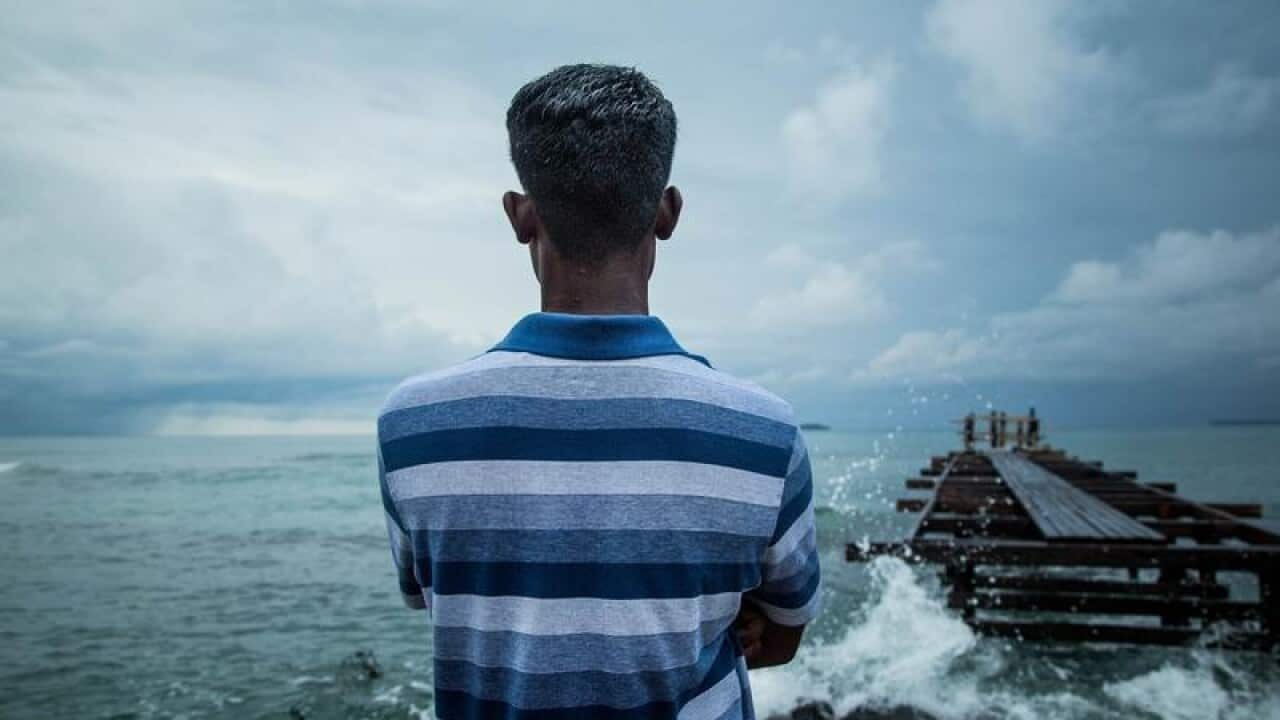Janet Wilson is worried the large, expensive package she has posted has been stolen.
The tracking number indicates it’s sitting in Port Moresby, the capital of Papua New Guinea, but it hasn’t yet found its way to Manus Island yet - just north of the mainland.
For several years, Ms Wilson, 69, has been sending items to Manus and Nauru - a tiny island country northeast of Australia - from her home in the small town of Kyogle, New South Wales.
“Postage is expensive, it’s $70 for about four kilograms. It often goes astray, or gets stolen or just takes a long time,” she told SBS News. “But it’s probably one of the most practical things I can do.”
'Mums 4 Refugees'
Ms Wilson, a local councillor, is part of a loose network of dozens of women who support refugees and asylum seekers on Manus Island and Nauru who have been trapped in immigration limbo for more than four years.
There are about 309 people left on Nauru and several hundred on Manus Island. Many of those remaining are single men.
The women are connected through Facebook; they’re members of groups such as ‘Mums 4 Refugees’, ’Grandmothers against detention of refugee children’ and ‘We Care Nauru – Gifts Network’.
Under a policy designed to deter unauthorised boat arrivals, the Australian government has refused to resettle the refugees in Australia. But fearing persecution in their homeland they have no choice but to wait to be resettled in a third country - a process which, Ms Wilson says, has been painstakingly slow.
“They don't understand how or why they have become political pawns in a game which is not of their making,” she said. “Neither do I.”
About 145 refugees on Nauru and 85 on Manus have so far been resettled in the US under a deal which began in September.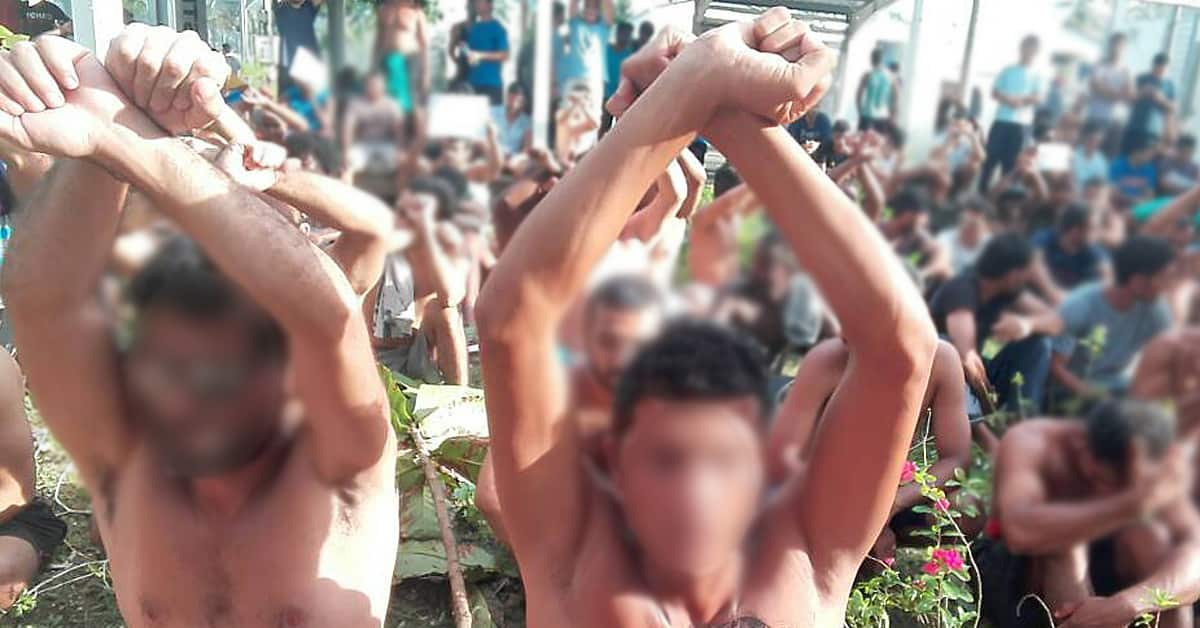 The United Nations has criticised Australia for having “abandoned” refugees on islands where it claims medical services are inadequate, isolation drives mental illness, and self-harm is prevalent.
The United Nations has criticised Australia for having “abandoned” refugees on islands where it claims medical services are inadequate, isolation drives mental illness, and self-harm is prevalent.

Refugees and asylum seekers stage a protest on Manus Island in November. Source: AAP
The women send over basic supplies and also provide emotional support. They sometimes help in emergencies by connecting asylum seekers with advocates, legal services and the media. On several occasions, they’ve talked men down from suicide attempts.
On several occasions, they’ve talked men down from suicide attempts.
When one teenager on Manus sent a suicide farewell to Marilyn Beech - a former school teacher who lives in Albany, WA, she was able to respond immediately
“I phoned other refugees I knew, who went immediately to the desperate one and held him all night,” the 65-year-old told SBS News.
'Middle-class housewives'
The supporters, many of whom are women in their 50s and 60s, have embraced Facebook as a means of connecting directly with the refugees.
“I am not of the ‘tech generation’ and I would never have believed that it was possible to develop long lasting friendships with people online,” Ms Wilson said.
Still, she’s found herself using emojis and Google Translate to connect with those who spoke limited English when they first got in touch.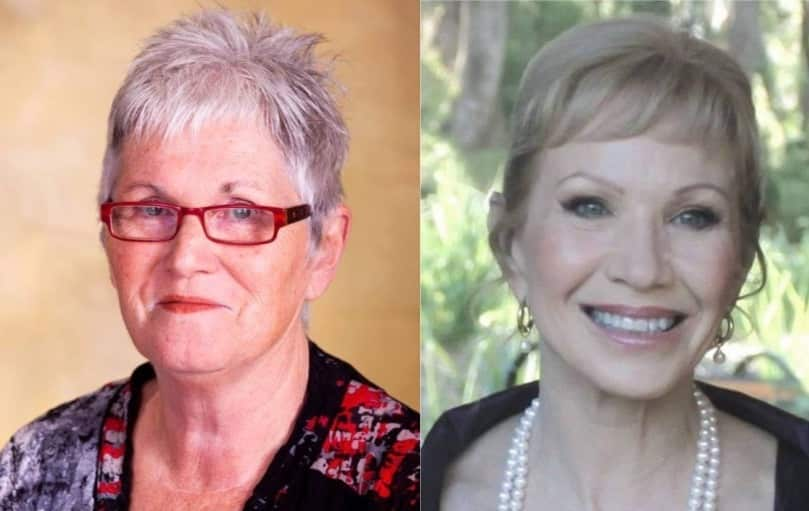 “I fit that demographic of the menopausal middle-class housewife,” says Jane Salmon, 57, a former publicist and passionate but self-aware ‘bourgeois activist’.
“I fit that demographic of the menopausal middle-class housewife,” says Jane Salmon, 57, a former publicist and passionate but self-aware ‘bourgeois activist’.

Janet Wilson, left, and Marilyn Beech. Source: Supplied
I fit that demographic of the menopausal middle-class housewife.
“The guys are pretty undemanding,” she says of the men she supports on Manus.
“They mainly need conversation and respect.” She tells them to think of her like an aunt.
From new shoes to smartphones
Ms Wilson is most focused on supporting men she has befriended on Manus. In particular, a number of gay and disabled asylum seekers, who she says face an especially tough time.
Tasmanian woman Turid Hopwood, 60, helped kickstart one refugee’s small-scale painting business with a package of supplies she sent to Nauru.
Supporters have also aided women on Nauru, particularly those who have become pregnant, sending breast pumps, clothes for newborns, shoes, books, medications and dental supplies. They have also sent toys for children on the island.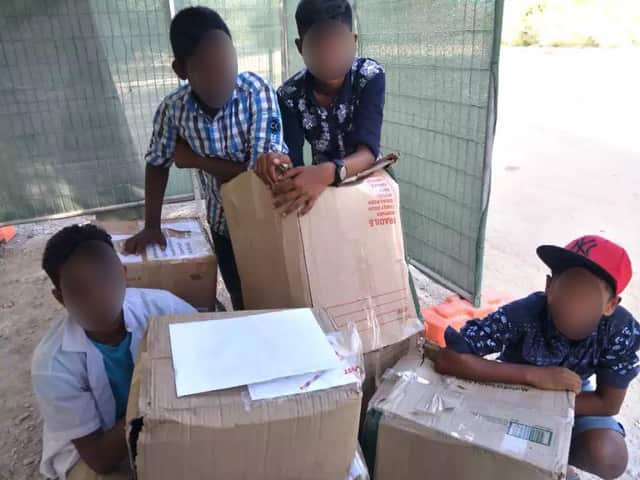 One of the most needed things is internet access, so refugees and asylum seekers can keep in touch with family, supporters and emergency medical and legal services.
One of the most needed things is internet access, so refugees and asylum seekers can keep in touch with family, supporters and emergency medical and legal services.

Children on Nauru with some of the parcels. Source: Chrissie Eilenberg
Several volunteers have created a sophisticated system to fairly distribute smartphone credit top-ups for over 1,000 people. Together, they have raised thousands of dollars through registered charity 'Gifts for Manus and Nauru'.
'They are like my mother'
One man on Manus, a friend of Ms Wilson’s who didn’t want to be named, told SBS News that his online supporters show him the humanity of Australians, rather than the “cruelty” of Australia’s government.
Asked what the most important thing he had received was, he said it was compassion of the women.
“The most important thing is they are like my mother, they give me hope and encourage me to be strong person,” he said.
Another man on Manus said he and others want to work and be independent but find themselves in a situation where they have no control and few opportunities.
“They rarely ask for anything,” Ms Wilson said. “Many of the men have families who depend on their support. This has been devastating for them. They are embarrassed and distressed about being dependent on others.”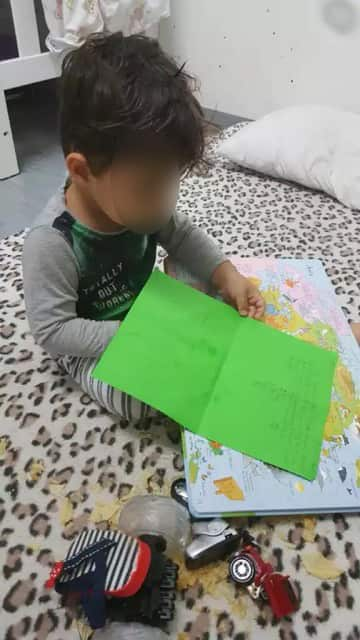 “I tell the men that we are all in this together and until it ends we can't change the fact that they are unable to work. We just share what we can until it is over.”
“I tell the men that we are all in this together and until it ends we can't change the fact that they are unable to work. We just share what we can until it is over.”

A child opens a parcel sent by one of the women. Source: Chrissie Eilenberg
I tell the men that we are all in this together.
The men stuck on Manus battle daily boredom, with few opportunities for entertainment or socialising. Every day a group of them stage a peaceful protest, holding signs and crossing their wrists above their heads to mime handcuffs.
That’s why Ms Wilson's latest package, the one she fears has been stolen, is a $400 television, which she hoped the men could use to watch soccer together.
It was intended as a Christmas present, but months later she is still chasing up the shipment with PNG postal workers. "This non-delivery has been very disappointing," she said.
UPDATE: After speaking with SBS News, Ms Wilson wrote to say the TV had finally arrived, months after it was posted.
Readers seeking support and information about suicide prevention can contact Lifeline on 13 11 14, Suicide Call Back Service on 1300 659 467, and MensLine Australia on 1300 78 99 78.
Multicultural Mental Health Australia: National Aboriginal Community Controlled Health Organisation:

